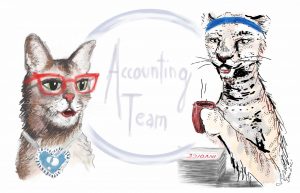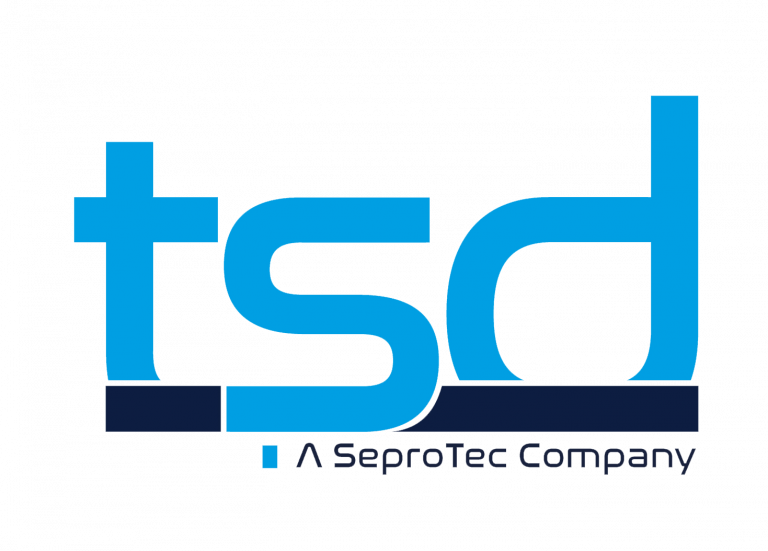Accounting at an LSP
 Accounting teams are often overlooked in our industry.
Accounting teams are often overlooked in our industry.
Yet an efficient, thorough and transparent approach to the subject of accounting is just as important for business success as maintaining appropriate quality standards.
But why is that? What exactly does the role as an accountant entail? Why do we consider accounting to be so key?
Together in an interview with two of our colleagues from the accounting team, we dedicated some time to find answers to those very questions.
Alena and Dorothea have both been working in accounting at tsd for several years and were also previously active in other areas of the company.
tsd: Thank you so much for taking the time for a short interview today. Could you start by briefly explaining which tasks you normally take on and with whom you mainly interact in the company?
Dorothea: Our tasks include classic topics such as invoicing, handling invoice receipts, operational accounting, as well as time and attendance management, controlling and KPI reporting. So, all in all, we deal with colleagues from right across the company in one way or another.
Alena: I am also our internal “Plunet representative” and take care of the implementation and use of the project management software in our company.
tsd: Dorothea, you decided on your own initiative to move from the Project Management team to our Internal Accounting team. What motivated you to do so at the time?
Dorothea: After 8 years in Project Management team, I simply needed a change of scenery. Since I’m quite numerate and I was already interested in accounting topics during my training, this was a great opportunity for me to develop myself further.
tsd: Our success is also due in no small part to the efficient management of our external workforce – “A happy translator is a good translator” as the saying goes. Your work makes an important contribution to this. What is your strategy when working with our external team?
Dorothea: We couldn’t agree more! That’s a saying we always try to work by. We always place great importance on the payment terms of our suppliers. After all, this is the translators’ main income and it is vital to us that they receive their money as quickly as possible. If, for example, there are public holidays coming up, then we sometimes just pay them earlier.
Alena: In addition, we have started to integrate Plunet more and more into the company processes over the past few years, which has made everything much easier. The translators now get access to the system step by step and can see an overview of all their orders on the platform. This saves them a lot of time and effort. To name just one example, translators no longer have to additionally contact our project managers about individual orders. As a result, everything has become that bit clearer and much faster.
tsd: Your work is also important for customer communication. What sort of the challenges do you face here in particular?
Alena: Generally, the communication with our customers only relates to a specific sub-area, so identifying the right contact person to raise queries about invoicing at the customer’s end can be difficult.
tsd: Continuing on the topic of customer communication –can you think of a particular example where this works particularly well?
Dorothea: Yes, one of our main customers from the mechanical engineering sector comes to mind. We have close contact with the contact persons from their accounting department, and it is this close contact that facilitates communication enormously and leads to a more active exchange of information overall.
We are informed weekly about which projects can be invoiced and can verify this from our side. Usually we get feedback on the topic within a week.
Alena: With this specific customer, our contacts also give us prior warning if there are going to be any delays, so we can rearrange ourselves accordingly well in advance. Clear communication certainly makes things a lot easier what that’s concerned!
tsd: Alena, you have been supervising the use of Plunet within the company for many years. How has the company’s use of the software developed in this area?
Alena: At tsd we have been using Plunet since 2008, but initially we only rolled out some of the functions. About 5-6 years ago, we then decided to up the ante and use the tool more intensely. One of our goals was to increase productivity in all departments.
Of the thousands of invoices we write, 99% are now sent digitally, and orders can be processed directly via the system. We can even implement more complex workflows for our customers now.

tsd: What was the thinking behind the decision?
Alena: For me, participating in various events such as the Plunet Summit and the Tekom Annual Conference was the catalyst. After discussing the topic in meetings, we first worked out the points that we could implement relatively easily and we thought “okay, why not give it a go” (laughs).
We now have a wealth of development history behind us. Our IT team, for example, has even programmed its own functions for Plunet so that we are now able to produce even more detailed evaluations.
tsd: So the opportunity to exchange ideas at events has been a real motor for change and innovation?
Alena: Yes, definitely. Alone the opportunity to exchange ideas with other users and to get to know the software from other perspectives.
It’s a shame that the Plunet Summit had to be cancelled the last two years due to Corona. Last year I was actually supposed to give a presentation. Hopefully we can make up for it next year.
tsd: At tsd, our KPIs have long been an area of key concern. Many of our business decisions are based on them. To what extent have your tasks developed in the direction of controlling and what other changes do you expect to see in the next few years?
Alena: As we mentioned earlier, the more intensive use of Plunet allows us to make far more detailed evaluations, which simplifies many business decisions, such as the question, “should certain language teams be expanded or not?” Such questions will, of course, become more and more important for our internal planning and decision-making in the future and therefore also for our team.
Dorothea: Let’s see what the future holds (laughs). The market is increasingly ever-changing. Some evaluations will be less significant for us in the future while others, such as machine translation, will become even more crucial.
Alena: Exactly, and our own programming for Plunet allows us to respond flexibly to the changes in the market.
tsd: Last but not least: What is the “salt in the soup” for you, the highlight of the job that makes it particularly exciting and interesting?
Alena: The colleagues! I have become close friends with many of them outside of tsd.
Dorothea: Definitely the team. Not only the internal one. We’ve been working with some of our external translators and clients for years, and we don’t just talk to them about work, so you really gain a lot from the job.
